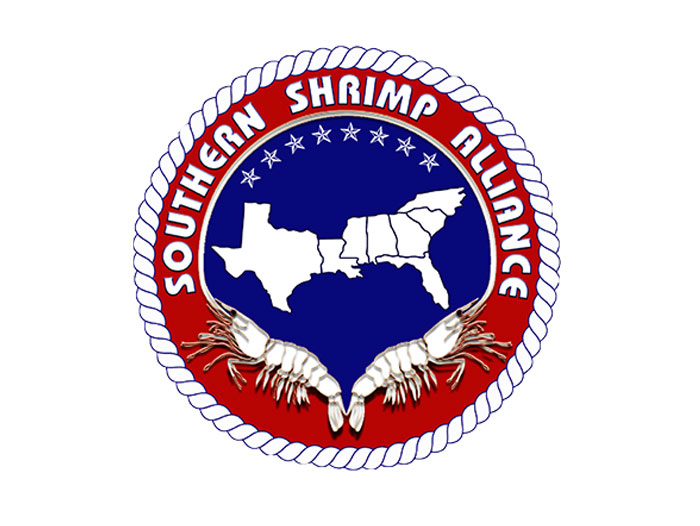Southern Shrimp Alliance Submits Comments Opposing Request by Government of Vietnam to be Treated as a Market Economy
February 12, 2024 | 4 min to read
The U.S. Department of Commerce is reviewing whether to classify Vietnam as a market economy, opposing widespread industry concerns. Currently viewed as a non-market economy, Vietnamese shrimp exporters face a 25.76 percent antidumping duty. The Southern Shrimp Alliance submitted objections, arguing that Vietnam's government still controls key economic aspects, including land ownership and labor rights. They warn that classifying Vietnam as a market economy could benefit Chinese industries by circumventing tariffs and increasing competition in the U.S. market.

Over the objection of a large and diverse group of American industries and producers, the U.S. Department of Commerce (Commerce) is currently conducting an administrative proceeding to determine whether Vietnam should be treated as a market economy for the purposes of our antidumping duty laws.
Commerce’s current practice treats Vietnam as a non-market economy (NME) and applies special rules to address the distortions caused by the government of Vietnam’s control over the country’s economy. Under these special rules, Vietnamese shrimp exporters that are controlled by the government are subject to a 25.76 percent antidumping duty rate.
Although the Socialist Republic of Vietnam continues to be governed under the one-party rule of the Communist Party of Vietnam and maintains laws that prohibit the private ownership of land, Commerce initiated a changed circumstances review (CCR) to consider the government of Vietnam’s request. Should Commerce determine that Vietnam is now a market economy, the antidumping duty rate applied to Vietnamese-government controlled entities would be eliminated, allowing these companies to make sales into the United States at much lower prices.
In response to Commerce’s CCR proceeding, the Southern Shrimp Alliance submitted extensive comments opposing the government of Vietnam’s request in December and then filed additional comments with the agency last week rebutting arguments made by Vietnamese government agencies and exporters. In its comments, the Southern Shrimp Alliance presented Commerce with evidence demonstrating that the Communist Party of Vietnam has maintained its prohibition on private land ownership, has refused to allow workers to bargain for wage rates, and has continued to empower the State Bank of Vietnam to control the country’s banking sector and limit the convertibility of Vietnam’s currency into foreign currency.
Further, the Southern Shrimp Alliance’s comments noted that any increase in foreign direct investment in Vietnam has been the result of the greater involvement of Chinese capital in the country. Thus, while Vietnamese interests argue that treating the country as a market economy would strengthen the bilateral relationship between the United States and Vietnam, in fact, it would provide Chinese industries with another avenue to sell to the U.S. market, circumventing the additional tariffs placed on Chinese goods.
In addition to the Southern Shrimp Alliance’s opposition, Commerce received comments in opposition to the government of Vietnam’s request from the American Shrimp Processors Association, the Catfish Farmers of America, the American Honey Producers Association, the Sioux Honey Association, the Aluminum Association, the Alliance for American Manufacturing, the Steel Manufacturers Association, the Rebar Trade Action Coalition, the Wind Tower Trade Coalition, the U.S. Aluminum Extruders Coalition, the American Kitchen Cabinet Alliance, Nucor Corporation, Cleveland-Cliffs Inc., Steel Dynamics Inc., Columbia Forest Products, Edsal Manufacturing Co., Inc., Commercial Metals Company, McWane Inc., and the United Steelworkers.
Read the Southern Shrimp Alliance’s December 21st Letter to Commerce opposing the government of Vietnam’s request to be treated as a market economy here: https://shrimpalliance.com/wp-content/uploads/2024/02/Southern-Shrimp-Alliance-Comments-in-Opposition-to-NME-CCR.pdf
Read the Southern Shrimp Alliance’s February 5th Letter to Commerce rebutting the arguments of parties supporting the government of Vietnam’s request to be treated as a market economy here: https://shrimpalliance.com/wp-content/uploads/2024/02/Southern-Shrimp-Alliance-Rebuttal-Comments-on-NME-CCR.pdf
Review all comments filed with Commerce here: https://www.regulations.gov/document/ITA-2023-0010-0001/comment
About the Southern Shrimp Alliance
The Southern Shrimp Alliance (SSA) is an organization of shrimp fishermen, shrimp processors, and other members of the domestic industry in the eight warmwater shrimp producing states of Alabama, Florida, Georgia, Louisiana, Mississippi, North Carolina, South Carolina, and Texas.
